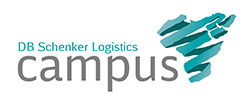
TWO-UP SUPERVISORY
Description
Supervisors are responsible for guiding employees and making sure that they complete tasks, assisting customers and meet deadlines. To become an effective supervisor, you have to learn how to communicate, solve problems and motivate staff where necessary.
Our Supervisory Management course will equip you with the skills to supervise staff proactively. Learn to communicate with employees and address work efficiency issues as they arise. You will also learn how to improve productivity within your unit.
This training programme lays the foundation for the development of management qualifications across various sectors and industries. It specifically develops management competencies required by learners in any occupation, particularly those who are currently operating as junior managers The training introduces key terms, rules, concepts, principles and practices of management that will enable learners to be informed managers in any occupation. It has also been developed to enable managers or prospective managers to access higher education and provide flexible access to life-long learning.
Learning outcomes
Module 1: Apply The Organisation’s Code of Conduct In A Work Environment Unit Standard 242815 Credits 5
- Explain the concept of personal ethics in relation to the moral compass (moral compass explains the origins of ethical behaviour under two axes, namely individual versus collective, or group; and behaviour versus outcome
- Describing the role of code of conduct in a work environment according to ethical principles
- Upholding the code of conduct with the work team
Module 2: Conduct A Structured Meeting Unit Standard 242816 Credits 5
- Prepare for a meeting
- Conduct a meeting
- Dealing with differing views in a meeting
- Distributing records of meeting
Module 3: Manage Expenditure Against A Budget Unit Standard 242810 Credits 6
- Explain the concept of budgeting pertaining to an area of responsibility
- Determining the elements of a budget relevant to an area of responsibility
- Monitoring and Controlling the actual expenses (and revenue) against projected budget
Module 4: Monitor The Level Of Service To A Range Of Customers Unit Standard 242829 Credits 5
- Identify internal and external customers were applicable
- Explain standards of customer service expected by the organisation
- Measure customer satisfaction
- Recommend corrective action
Module 5: Use Mathematics To Investigate And Monitor The Financial Aspects Of Personal Business National And International Issues Unit Standard 7468 Credits 6
- Use maths to plan and control financial instruments
- Investigate various aspects of costs and revenue including marginal costs, revenue and optimisation of profit
- Debate aspects to national and global economy, including tax, productivity
Module 6: Statistics & Probability Unit Standard 9015 Credits 6
- Self manage
- Critique and use techniques for collecting, organising and representing data
- Use theoretical and experimental probability to develop models and make predictions and study problems
- Critically interrogate and use probability and stats models in problem solving and decision making in real-world situations
Target Group
Supervisors and managers
Learning Delivery Method
Stand-alone classroom-based accredited course
Unit Standard Alignment
SAQA ID: 57721 NQF Level: 4 NQF Credits: 43
US Title: National Certificate Generic Management
Assessment
Optional
Duration
In-House Courses: 2 consecutive days of classroom training per module together with portfolio of evidence building.
6 Months
